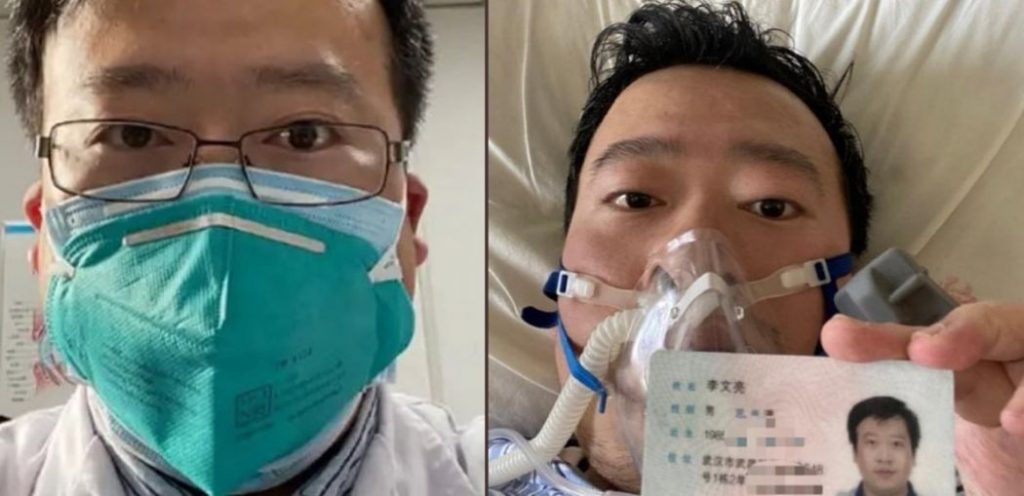Beijing: Police in China’s virus epicentre Wuhan apologised Thursday to the family of a doctor, who was reprimanded for trying to issue the first warning about the deadly coronavirus outbreak, after a Chinese government investigation found that their action against the whistleblower was not appropriate.
Li Wenliang, 34, contracted the virus while working at Wuhan Central Hospital. Li, an ophthalmologist, had sent out a warning to fellow medics December 30 but police told him to stop ‘making false comments’. He also succumbed to the dreaded virus.
A special investigation ordered by the Chinese government to probe the matter said the action of the police was inappropriate and asked it to be revoked. The investigation team said action against Li was not appropriate, state-run ‘China Daily’ reported Thursday.
The law enforcement procedure also was not up to standard, according to a statement from the special team dispatched by the National Supervisory Commission to Wuhan to probe the case.
The investigation team has advised discipline authorities in Wuhan to supervise the rectifications and urged the police to revoke the reprimand letter and hold relevant people accountable, the statement said.
Police in Wuhan have already revoked the letter of reprimand that deceased doctor received and apologised to his family, the Wuhan Public Security Bureau said. The police action in stifling his warning of coronavirus which now has become a national and international disaster had evoked public resentment in China.
Li had warned December 30 in the online chat group ‘WeChat’ that he had seen a report that showed positive test results of SARS for seven patients. Li and the seven others were summoned January 3 by Wuhan police for ‘spreading fake information on the internet’.
They were reprimanded by police. Li continued his normal work at the Wuhan hospital until January 10 when he developed symptoms of the coronavirus. “I was finally confirmed as being infected by the novel coronavirus,” Li wrote February 1 on ‘Weibo’, adding a dog emoji.
Li’s death from the virus in February prompted a national outpouring of grief as well as anger at the government’s handling of the crisis, and bold demands for freedom of speech, surprising authorities.
A wave of anger and grief flooded Chinese social media site ‘Weibo’ when news of Li’s death broke. The top two trending hashtags on the website were ‘Wuhan government owes Dr Li Wenliang and apology’ and ‘We want freedom of speech’. Both hashtags were quickly censored.
Agencies
